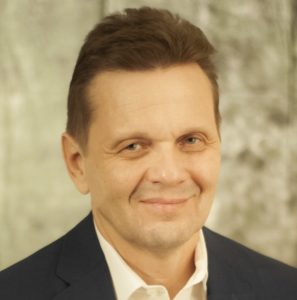 Leading up to the Super Tuesday primaries, Sen. Bernie Sanders, a self-described democratic socialist, emerged as the front runner to capture the Democratic nomination for president of the United States. In a recent CBS “60 Minutes” interview, Sanders praised Fidel Castro, the late Cuban dictator, for implementing “a massive literacy program.”
Leading up to the Super Tuesday primaries, Sen. Bernie Sanders, a self-described democratic socialist, emerged as the front runner to capture the Democratic nomination for president of the United States. In a recent CBS “60 Minutes” interview, Sanders praised Fidel Castro, the late Cuban dictator, for implementing “a massive literacy program.”
News media have reported similar praise of Soviet youth culture programs following a visit to the Soviet Union in the 1980s. In recent days, the Vermont senator has reaffirmed his praise of some communist Cuba’s social policies while also reasserting his opposition to the Cuban government’s authoritarianism.
I know firsthand what education and youth programs in a communist country are like. I graduated from both public school and university in the Soviet Union. The system was characterized by a stifling ideological uniformity. Tolerance for different points of view was not a value; neither were creativity and entrepreneurship. Young people had to wear red badges with Vladimir Lenin’s picture on it. Those who disagreed were not simply wrong; they were evil.
“I do not think being a socialist, or a democratic socialist, should automatically disqualify one from holding public office.”
The world was presented as the arena of perpetual struggle between evil capitalist and noble socialist systems. There was no middle ground. Anyone not “for us” was against us, with all the attending consequences.
Children of Christian parents were often ostracized and pressured to renounce their faith. Many Orthodox priests and Protestant pastors were thrown into reeducation camps, where some died as martyrs. Christians had no place in the bright communist future.
Christian believers had no place in institutions of higher learning either. When I began attending a local Baptist church, I discovered there were very few people with higher education. They were simply not admitted into universities. I became a Christian when I was a university student. I have no doubt that I would have been expelled, if not for Mikhail Gorbachev’s perestroika.
I would be remiss not to add here that, despite these challenges, I had a few remarkable teachers who managed to make their classes interesting and impactful. They were not necessarily opposed to the government, but they placed their emphasis on the value of learning and made their classes engaging. Thanks in large part to them and to my schoolmates, my experience of the Soviet educational system was not all negative. Still, I had to go through all the required brainwashing.
In my view, Sanders’ remarks, at the very least, suggest a lack of understanding that in communist countries basic education programs function as indoctrination tools. Cuba is no exception. One of the purposes of the literacy campaign in the 1960s was to establish the state monopoly on education. Protestant schools were shut down. Many Catholic priests and Protestant pastors were sent to reeducation camps, where they had to endure mental and physical abuse.
The free education offered in Cuba was thoroughly atheistic. It was also militarized. The volunteers were organized into brigades and wore uniforms resembling military fatigues. This literacy campaign had all the marks of a dictator trying to establish an ideological grip on the minds of younger generations.
I do not think being a socialist, or a democratic socialist, should automatically disqualify one from holding public office, even the highest office in the land. The world has seen many capable socialist heads of government – Olof Palme in Sweden, Bettino Craxi in Italy and Felipe Gonzales in Spain, to name just a few. Antonio Guterres, current secretary general of the United Nations, has been the president of Socialist International, the worldwide organization of socialist parties.
“Christians had no place in the bright communist future.”
I also find it appealing that, Sanders and many of his supporters, are sensitive to the plight of those afflicted and oppressed.
But Sanders’ latest remarks about Cuba do not exhibit that sensitivity. He did stipulate that he is “very opposed to the authoritarian nature of Cuba.” He also said, “When dictatorships … do something good, you acknowledge that, but you don’t have to trade love letters with them.” Many of those who fled the Castro regime will not find that satisfactory, as they feel that these stipulations fall short of a zero-tolerance attitude toward communist Cuba.
Smelling trouble, Florida Democratic Party leaders felt the need to condemn dictatorship in the wake of Sanders’ comments. Donna Shalala, Secretary of Health and Human Services under President Bill Clinton and now U.S. Representative from Florida, said, “[Sanders] doesn’t get it. He hasn’t been down here to talk to residents to understand how our community, not just the Cuban community, but the Venezuelan community, the Nicaraguan community, feel about socialism and about communism.”
Sanders insists that the kind of socialism he preaches is of Scandinavian, not Soviet, variety. He regards analogies between his democratic socialism and Soviet kinds of socialism as cheap shots. To give greater credence to this position, he should refrain from praising totalitarian literacy campaigns and other policies that promote the very kind of socialism and authoritarianism Sanders insists he does not espouse.
In this critically important election year, that would be a welcome message for many citizens, including Christians like me who are intimately familiar with communist regimes.
